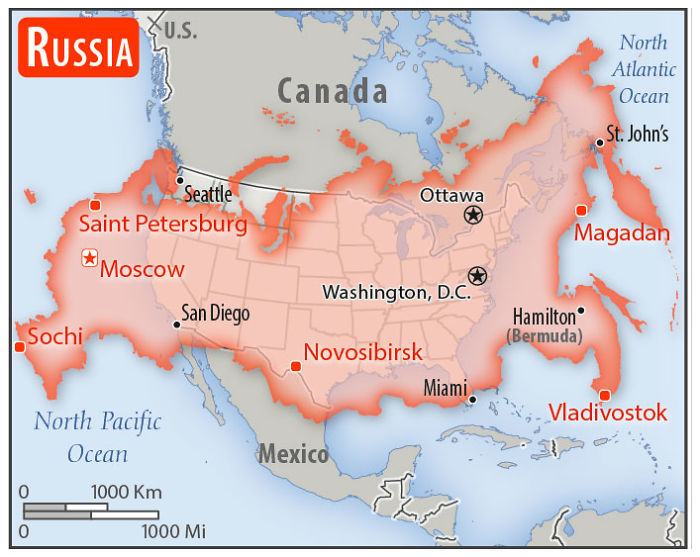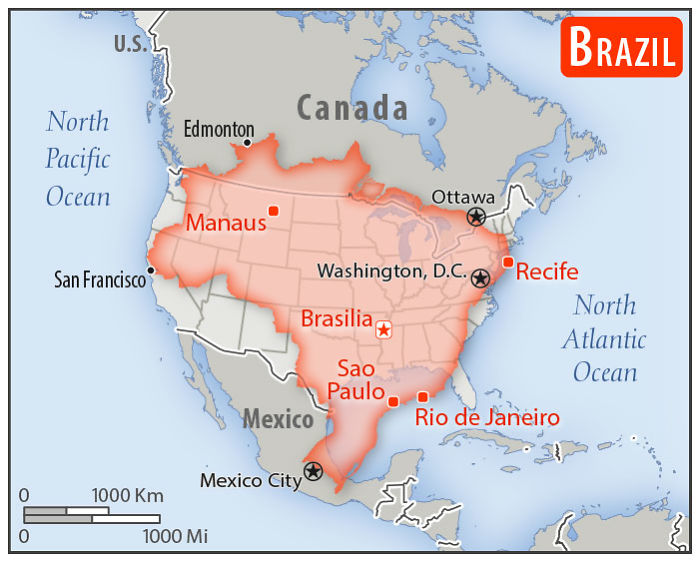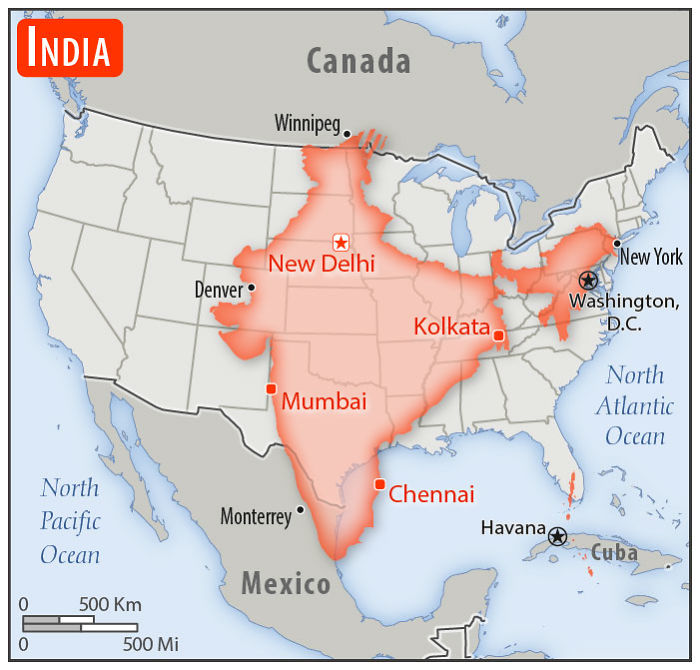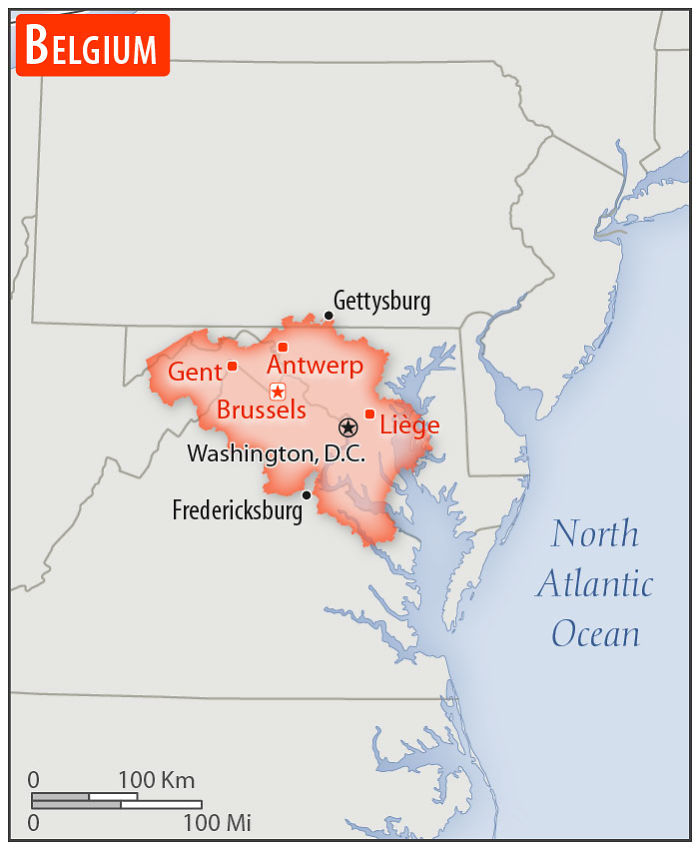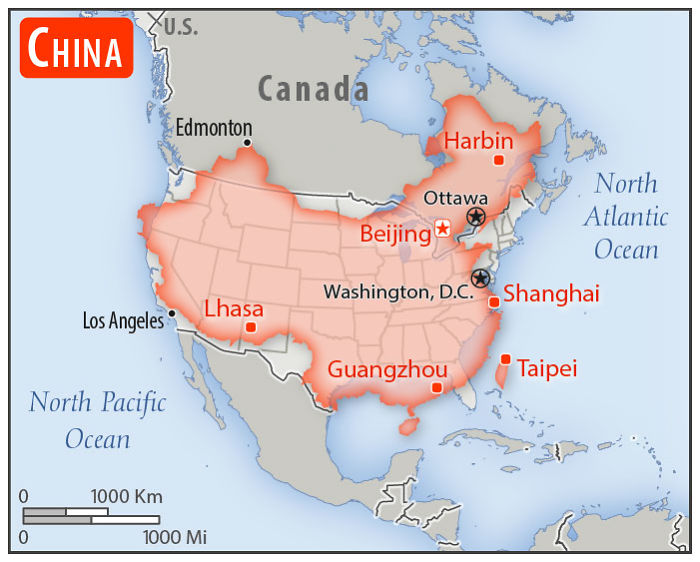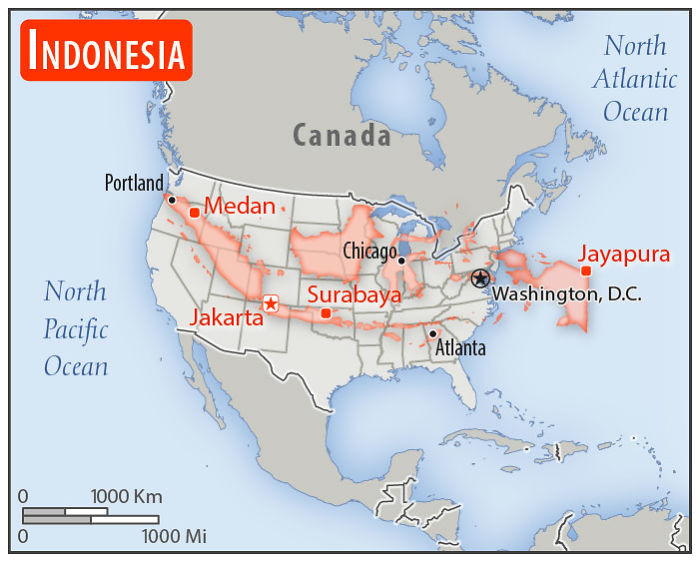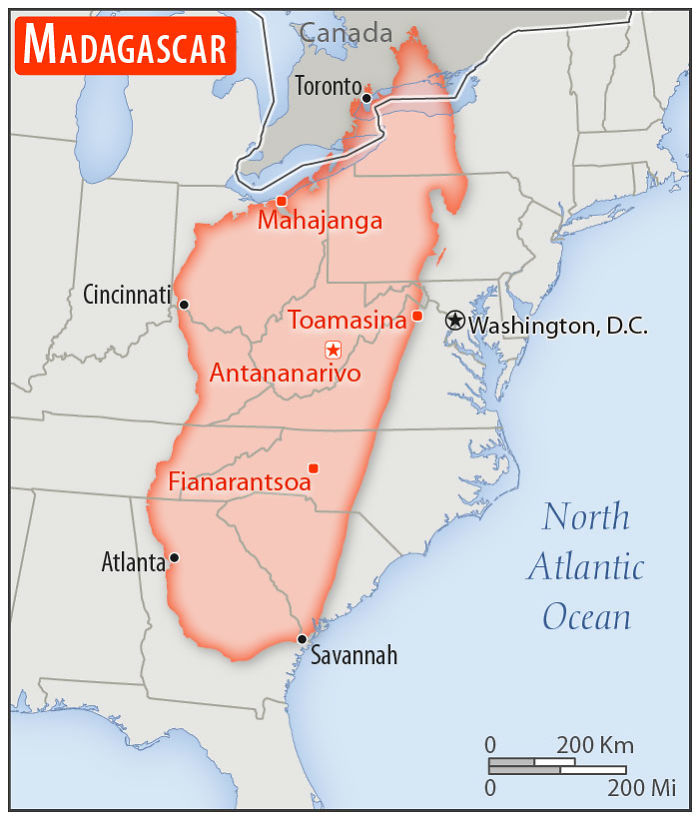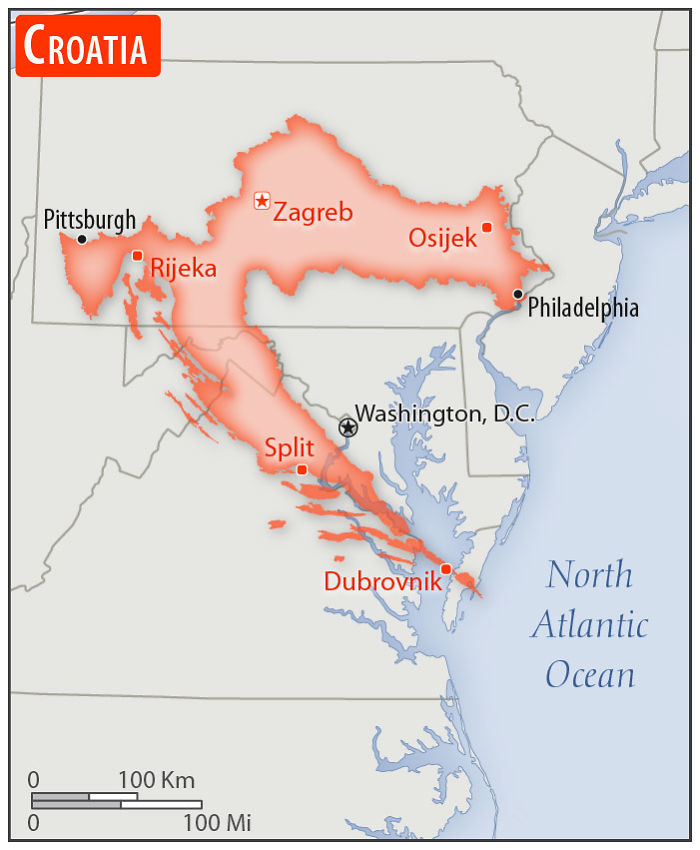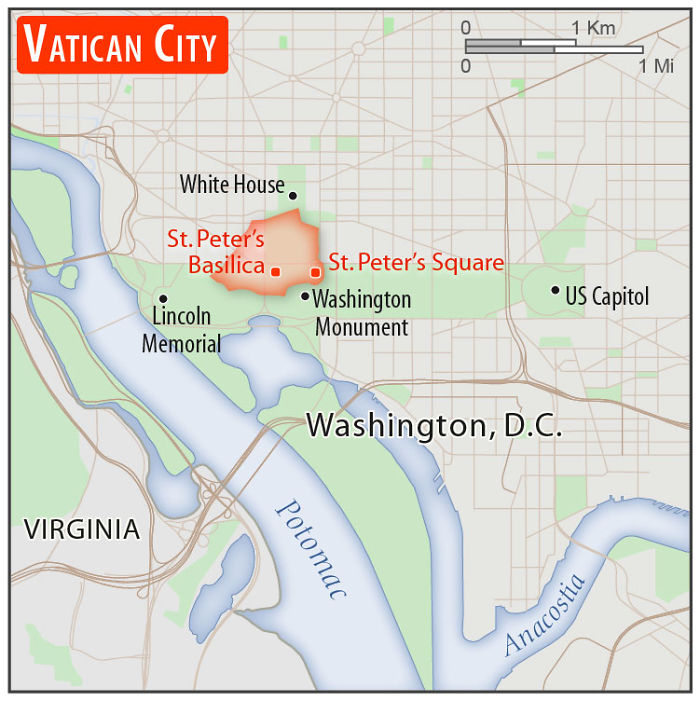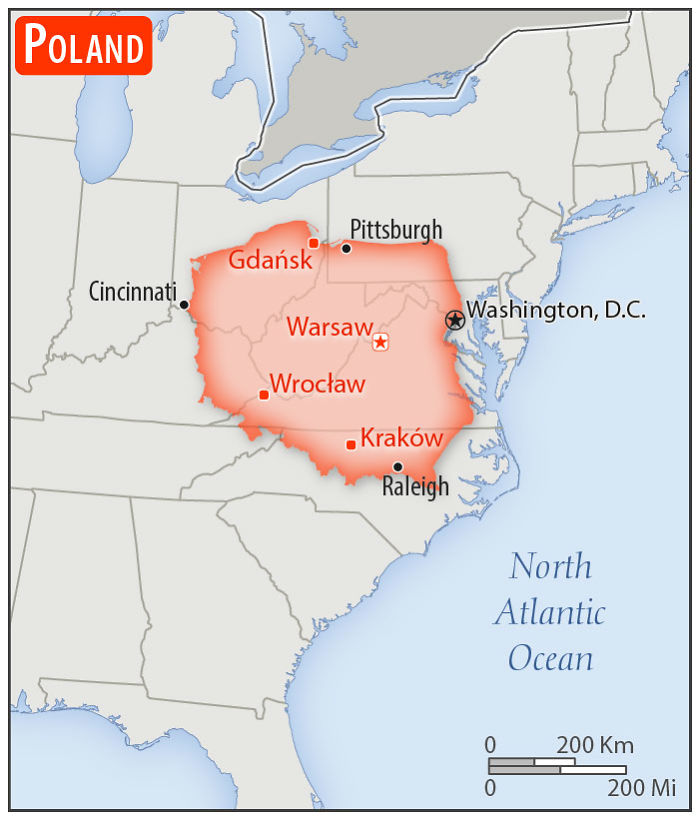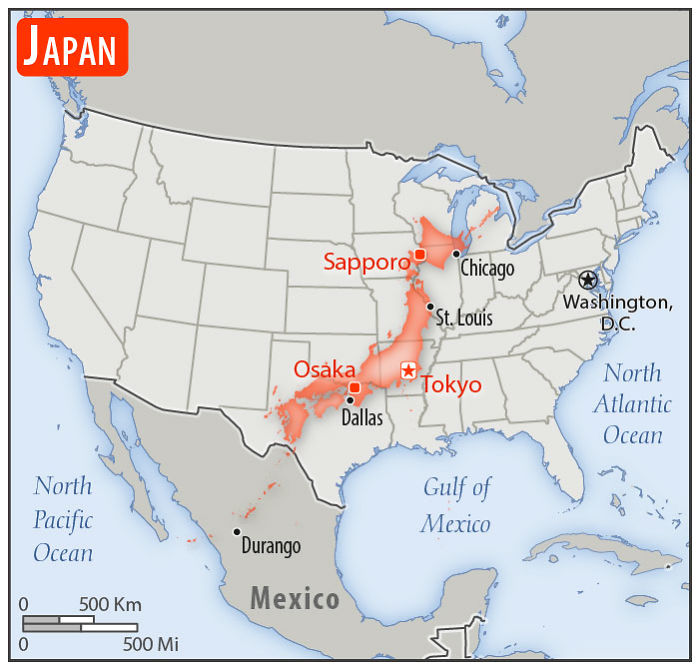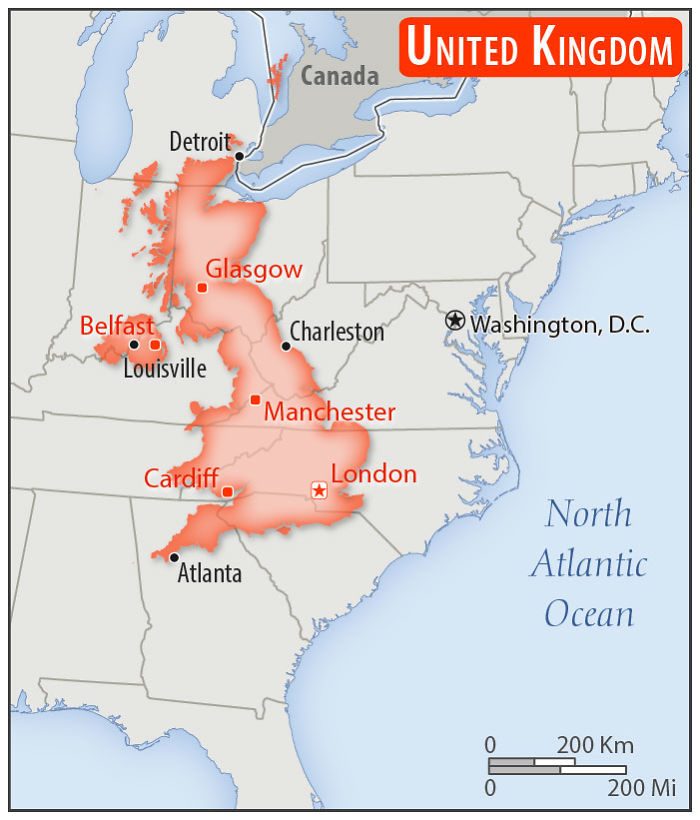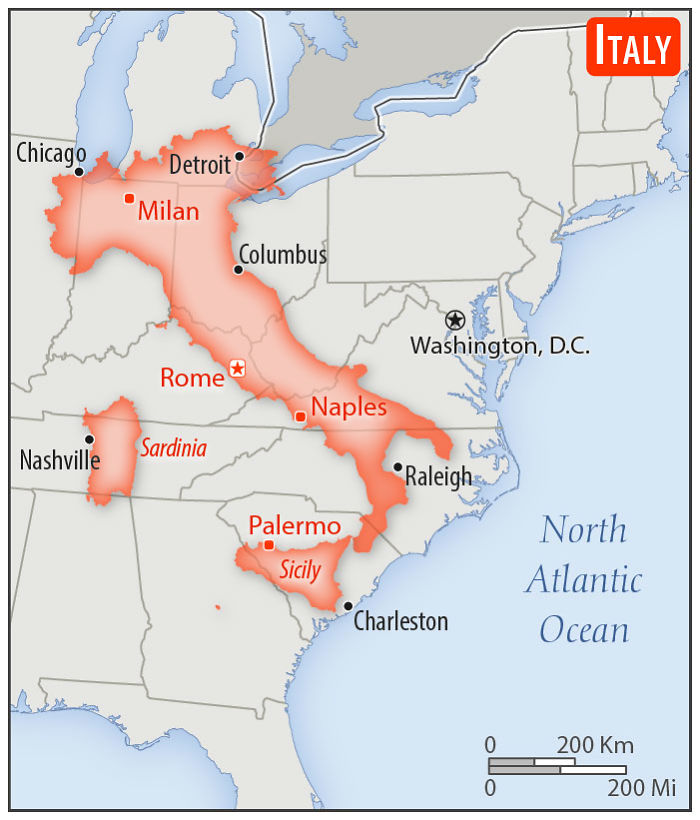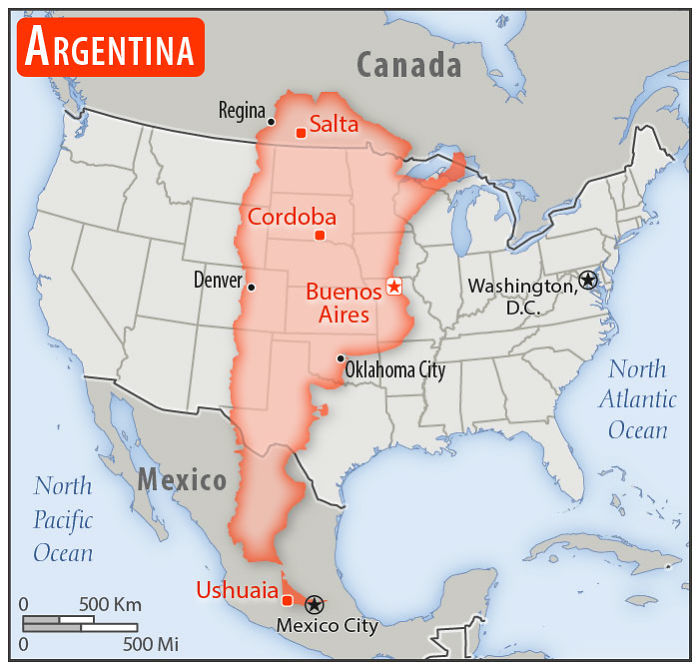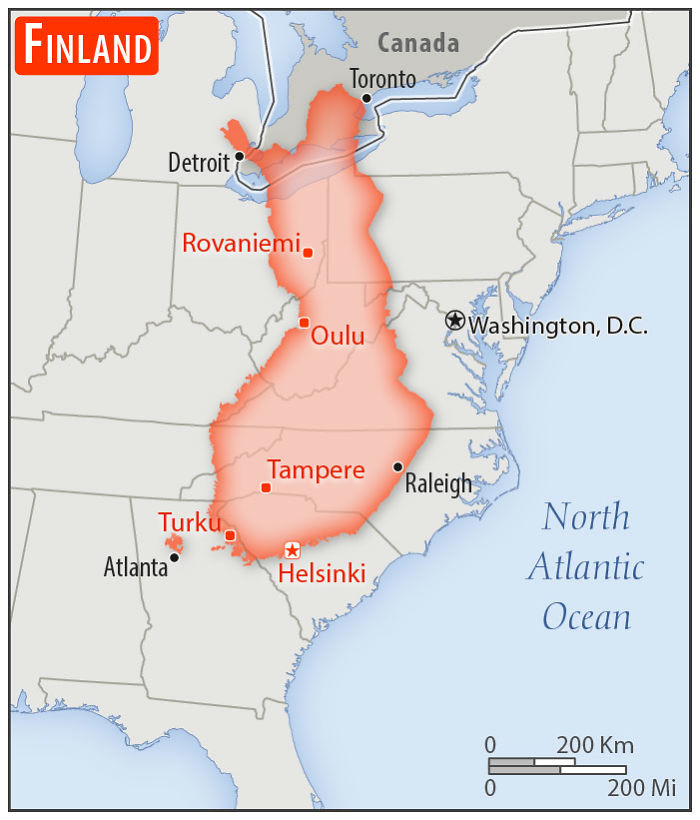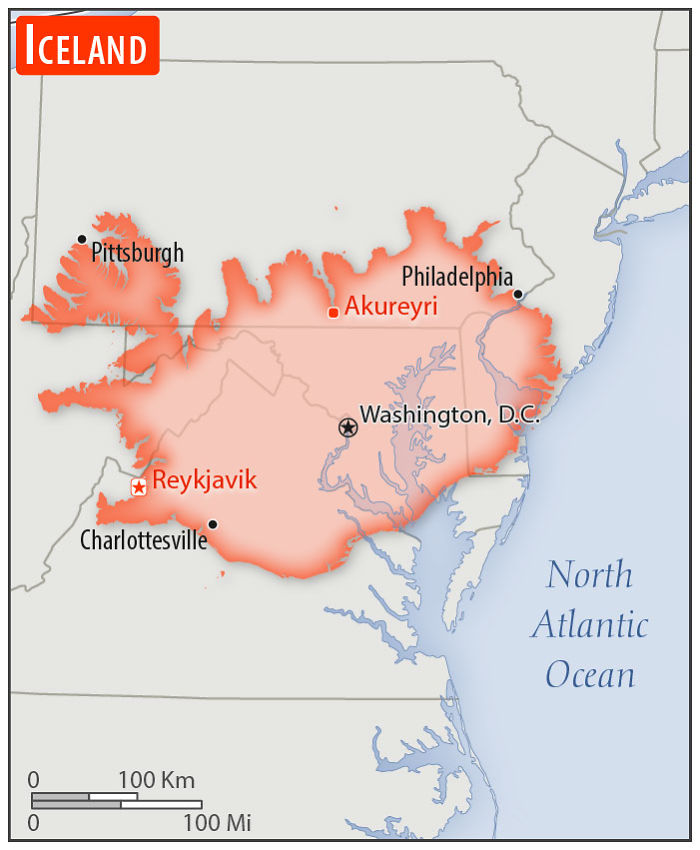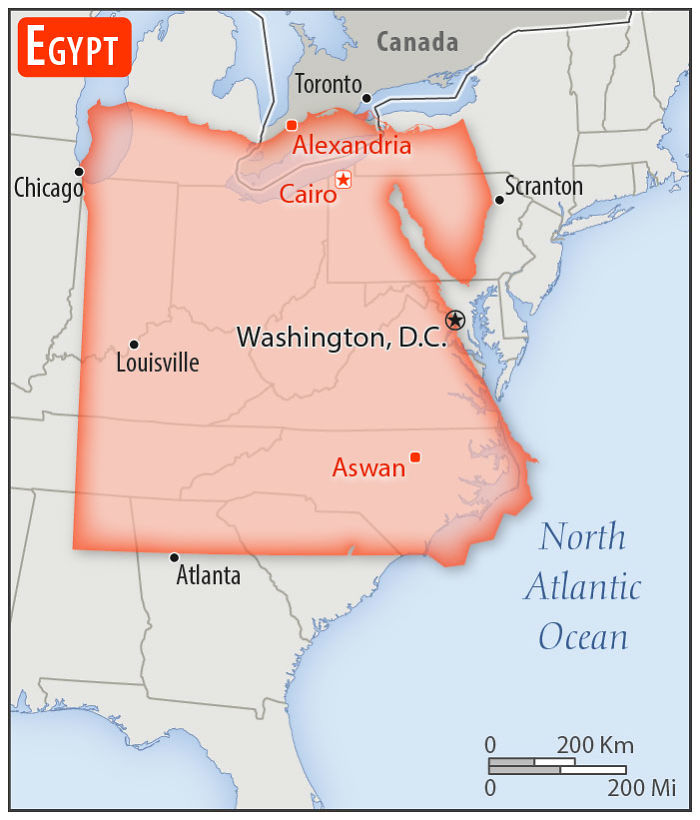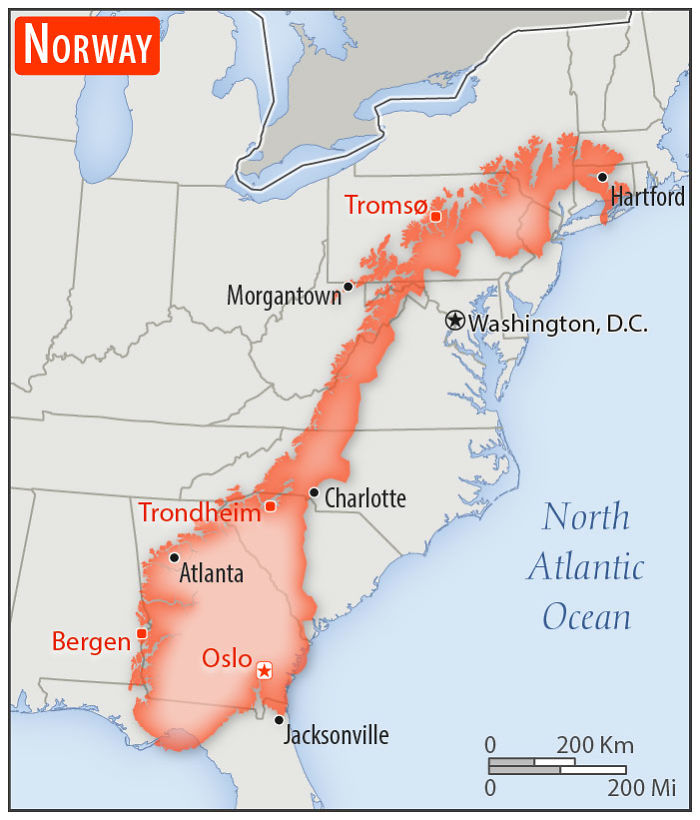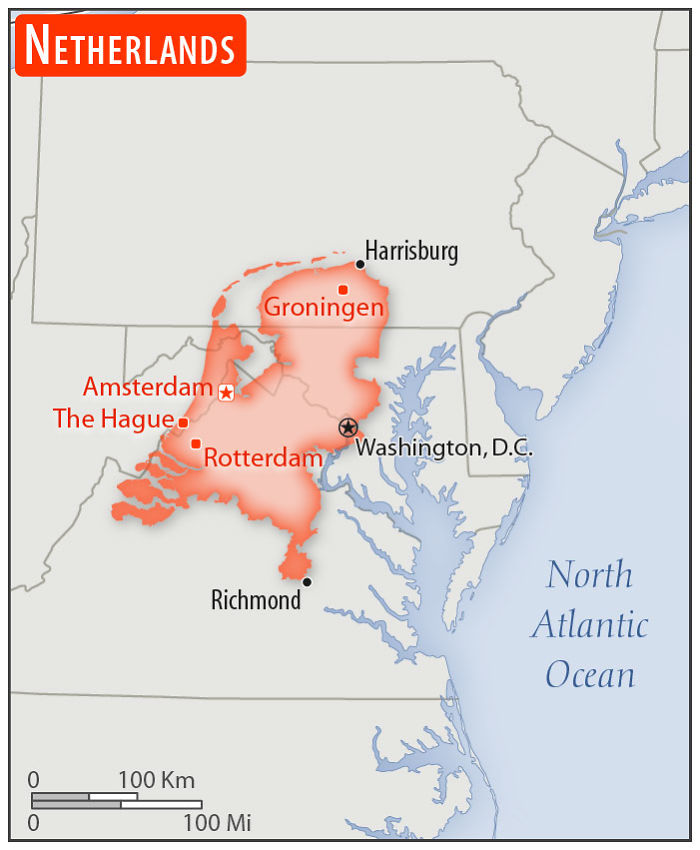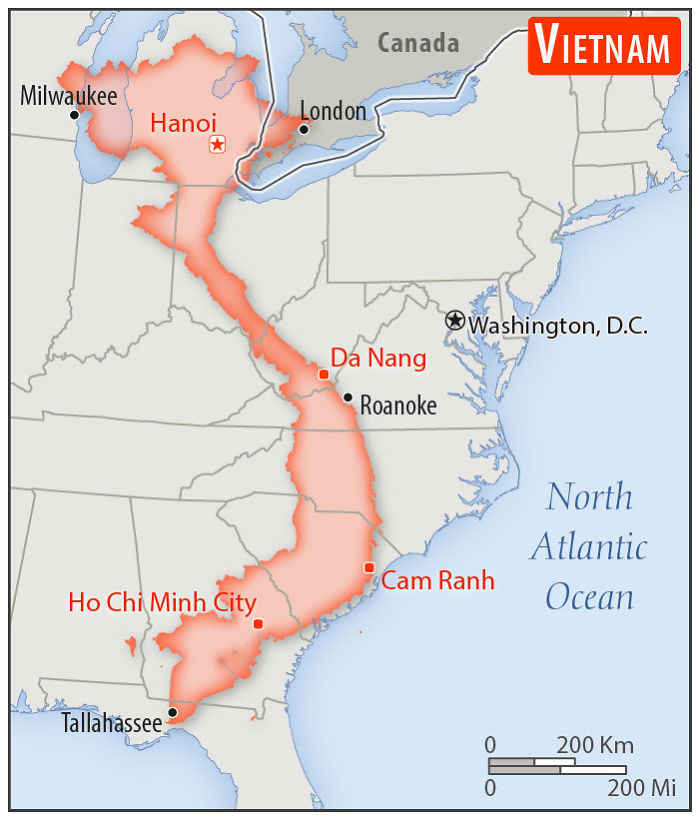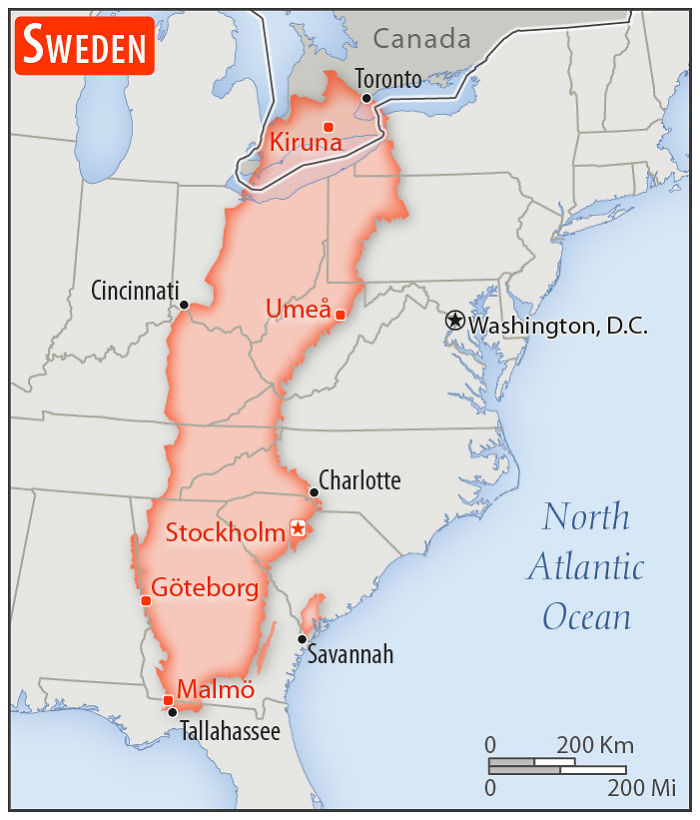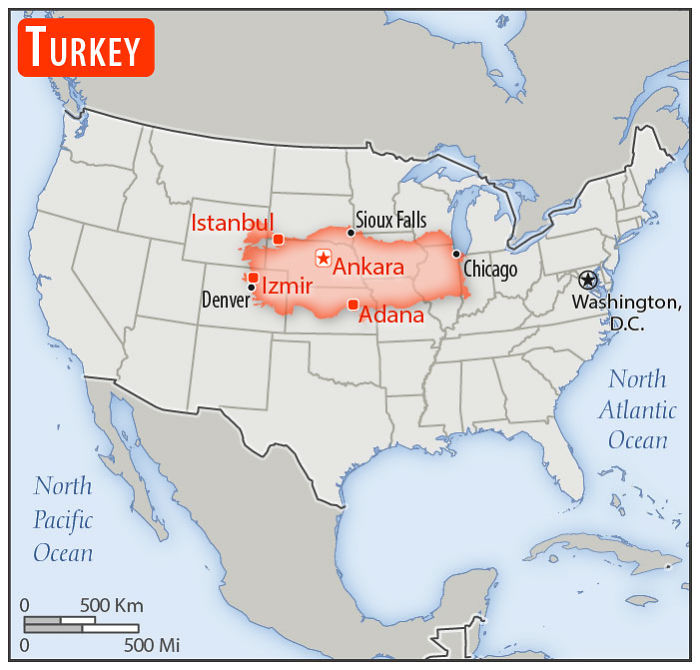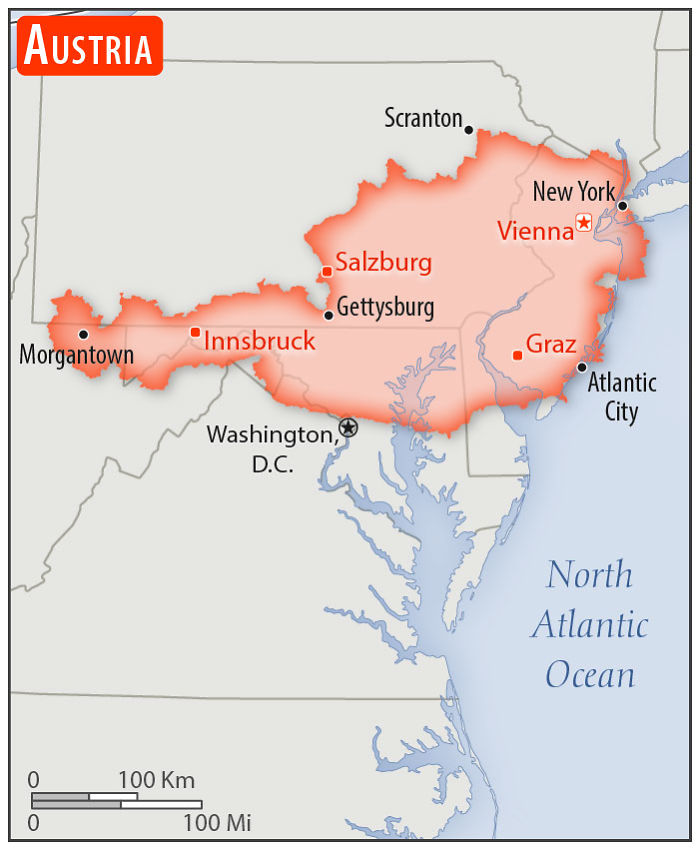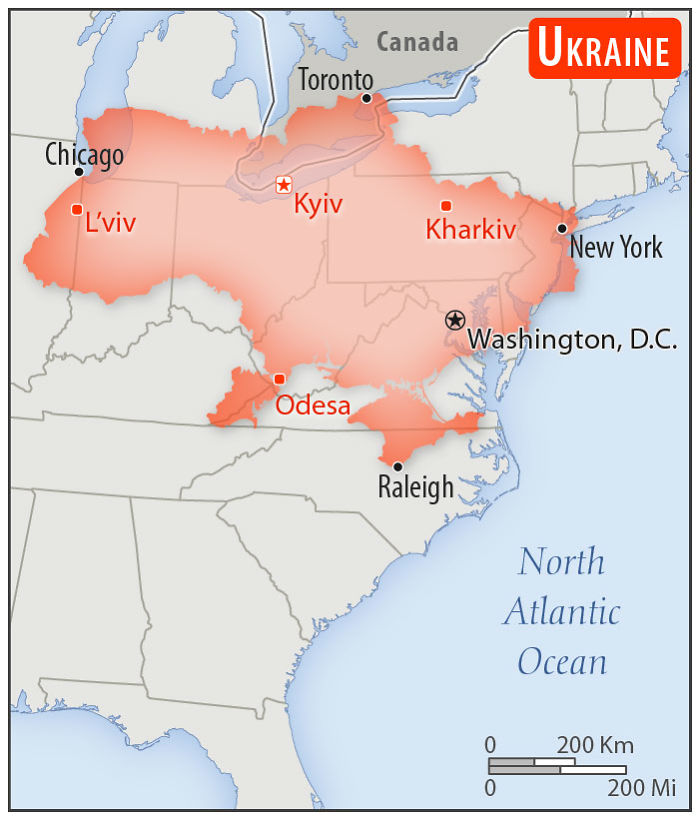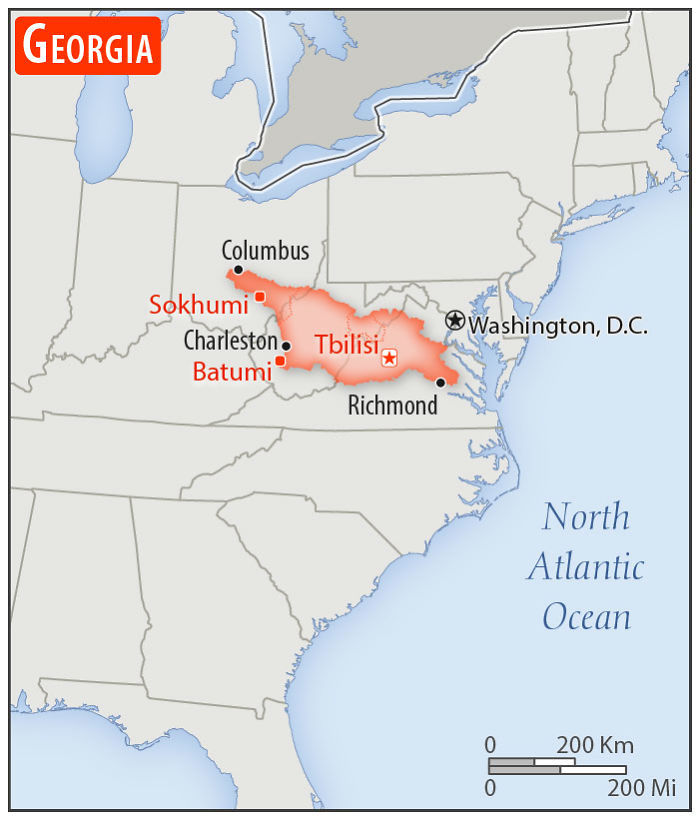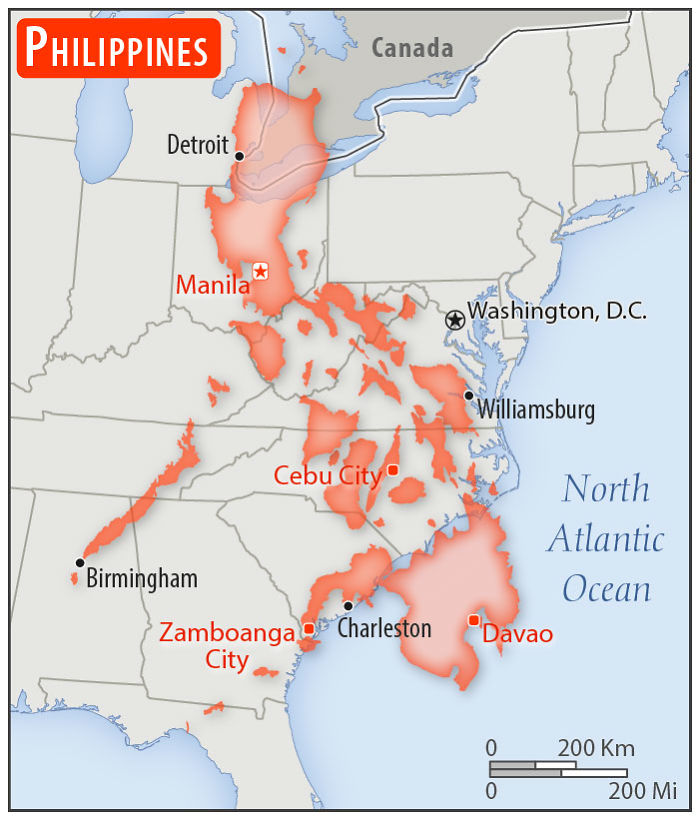Maps are deceiving. You see, the surface of a sphere cannot be represented as a plane without some form of distortion.
Since the 1500s, scientists have been developing algorithms that would help transform the globe into something flat, and to do this, they use a method called map projection.
There is no right or wrong way to do it, and everything depends on the map's purpose. But while every type of map preserves one thing, it messes up the other.
Area, shape, direction, bearing, distance, and scale of the landmasses are the main properties map makers are constantly juggling. Most people usually look at the Mercator projection.
This post may include affiliate links.
Australia
Population: 23,470,145, and all trying to buy a house in Melbourne it seems
The Mercator map is widely used for navigation because it represents lines of constant course. A line drawn between two points on this map would provide the exact angle to follow on a compass to travel between these two points. It also preserves the shape of countries.
However, world maps are less practical because the scale is distorted. And that’s where the Internet comes into play. Imgurian and map lover Mkyner has compiled a series of overlapping maps showing countries from all over the world on top of the United States to give everyone a better understanding of just how huge it is.
New Zealand
Population: 4,545,627 people and about 30,000,000 sheep
New Zealand is also quite a bit larger than what I had in my head. Lovely country, with real leadership.
Most popular maps are created using cylindrical projection. Imagine putting a cylinder over a globe and projecting each of the points of the sphere onto the cylindrical surface. Then, if you unroll the cylinder, you end up with a flat rectangular map.
Flemish geographer and cartographer Gerardus Mercator created the Mercator projection in 1569. Gerardus preserved the direction of his map by varying the distances between the latitude lines and making them straight.
However, as with every map, there are drawbacks. For example, Greenland and Africa look about the same size on the Mercator map. However, the actual size comparison to Africa shows that Greenland is smaller. 14 times smaller, to be precise.
However, mapping services like Google Maps still use Mercator. Again, because of its ability to preserve shape and angles. Close-up views of cities and roads are more accurate.
A 90-degree right turn on the map is a 90-degree right turn on the street you’re driving on. And when you’re close-up, the distortion is minimal. If you want, however, a map that shows the actual size of things, fire up one that’s created with a Gall–Peters projection.
India
Population: 1,296,834,042
Expected to pass China in population within a few years. Stripped bit near Winnipeg is occupied by China.
"I've liked maps for as long as I can remember," Mkyner told Bored Panda. "I enjoy exploring distant places on Google Earth, I think it's important to have an understanding of the countries we hear about in the news, and I love sharing this interest with others (as I think many people do with their hobbies/passions)."
Belgium
Population: 11,570,762
"I was looking up maps of South Africa yesterday (19 May 2019) when I came across the first comparison map. That quickly led to the CIA World Fact Book (a US government source). I was trying to procrastinate on some chores, so compiling those maps into a post seemed like a perfect idea."
"Note, I did not include every country in this USA size comparison post," they added. "I skipped Canada and Mexico, since they were on a lot of the maps anyway, and some of the smaller/more obscure countries (think Togo and Kyrgyzstan)."
Indonesia
Population: 262,787,403
More than half the population is on that one island running from northern New Mexico to central Oklahoma. The big island in the upper Great Plains and that thing in the Atlantic are mostly jungle.
Madagascar
Population: 25,683,610
Ports: closed.
Now, this is something I had no idea of. Madagascar is much larger than I thought it would be.
Croatia
Population: 4,270,480
One of the coolest-shaped countries, like a Needler from Halo.
Also, to drive from Split to Dubrovnik, you need to exit Croatia into Bosnia Herzegovina and back into Croatia.
Poland
Population: 38,420,687
Japan
Population: 126,168,156 and 1 Godzilla
Bullet train will take you from Tokyo, Arkansas to Osaka, Texas in about 2.5hrs
United Kingdom
Population: 65,105,246
Italy
Population: 62,246,674
Giving South Carolina the boot.
If they'd flip the image, Italy could be giving Washington DC the boot...
Argentina
Population: 44,694,198
Turkey
Population: 81,257,239
*Constantinople
It's istanbul, not constantinople now, it's istanbul (umbrella academy anyone)
Ukraine
Population: 43,952,299
IIRC, the Russian-occupied part in the east is roughly New Jersey, Delaware, and a bit of Pennsylvania
Largest country in Europe, in fact (excluding countries that span both Europe and Asia).
Georgia
Population of the country of Georgia: 4,926,087
Population of the US State of Georgia: 10,519,475
Philippines
Population: 105,893,381
Fun fact: Philippines is the world's largest island within a lake (Main Crater Lake) that is situated on an island (aka Taal Island) located in a lake, within an island (Luzon). I been there and is beautiful!
I wish you would have had the US map stay the same size for all the comparisons.
Eheheh! Some countries would have been invisible in that case. ♥
Load More Replies...I wish you would have had the US map stay the same size for all the comparisons.
Eheheh! Some countries would have been invisible in that case. ♥
Load More Replies...
 Dark Mode
Dark Mode 

 No fees, cancel anytime
No fees, cancel anytime 










